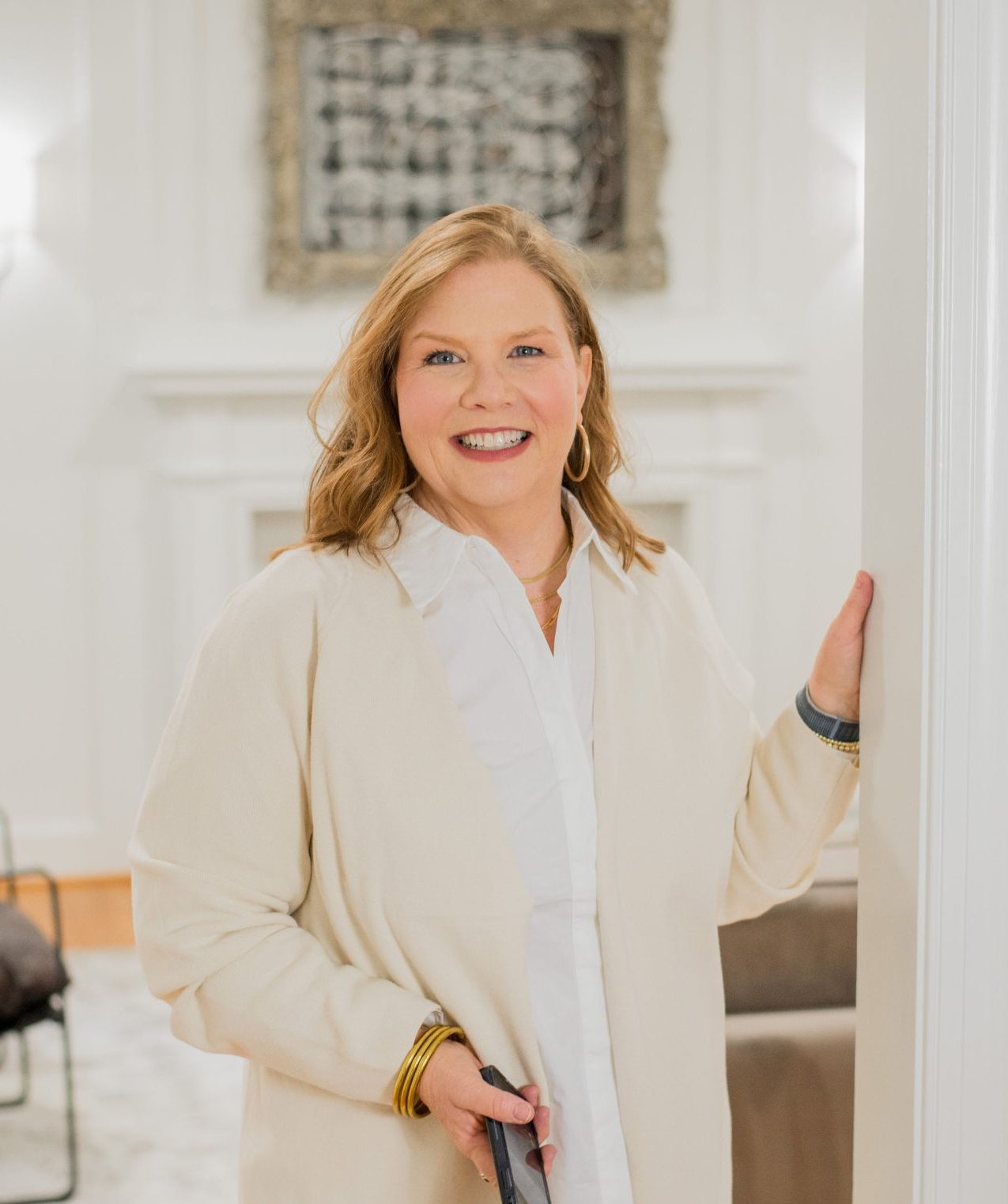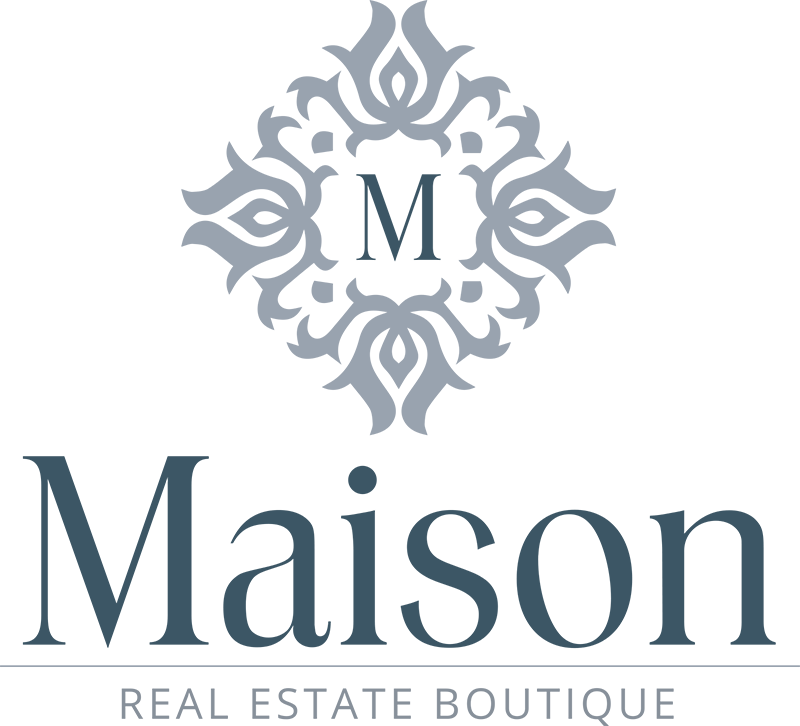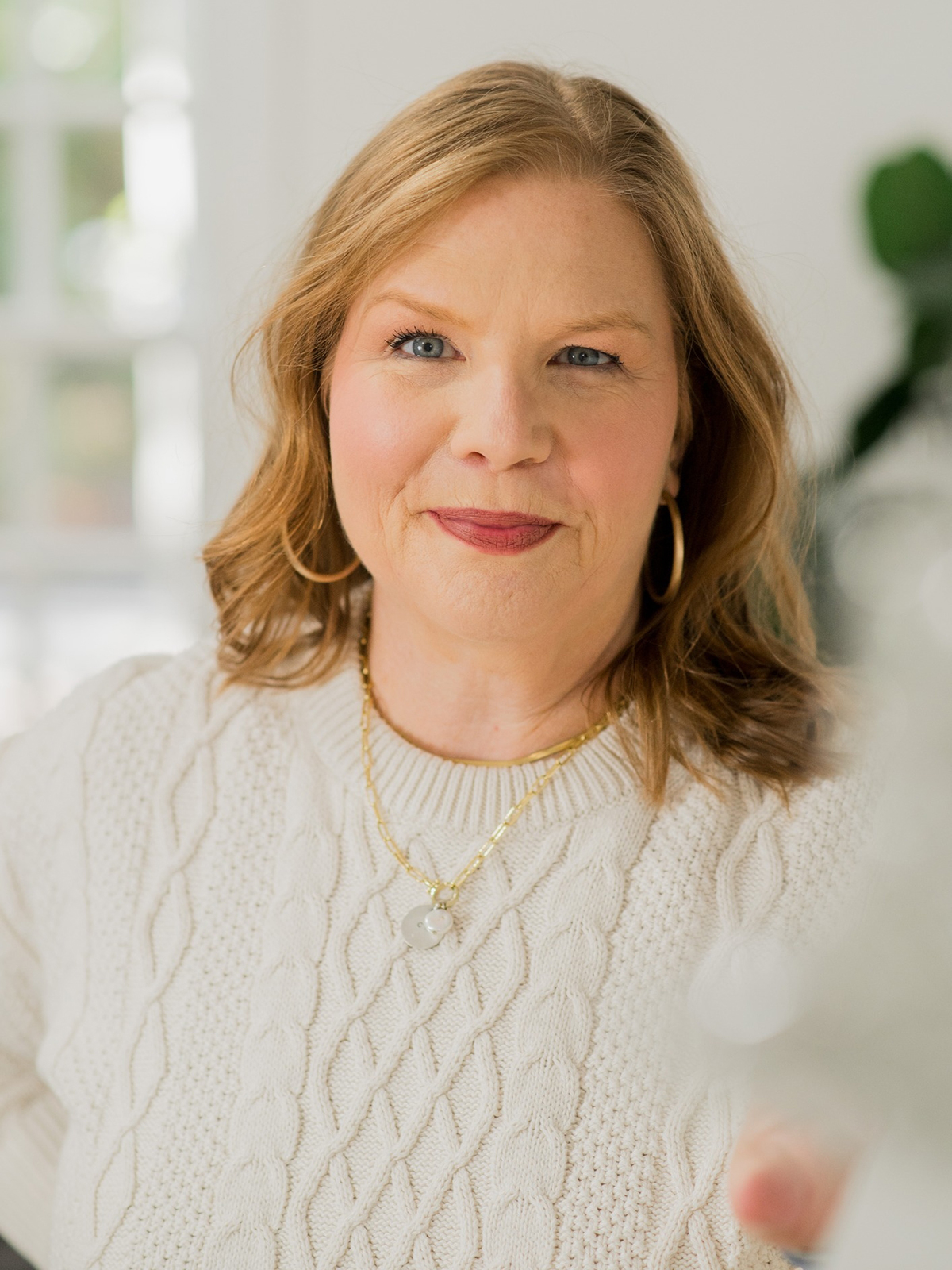buying a home in rva
Keep on top with latest and exclusive updates from our blog on the Los Angeles real estate world. Cindy Bennett Real Estate posts about tips and trends for buyers, sellers, and investors every week. Whether it be about staging your property or a snapshot of the market, this is your one stop shop.
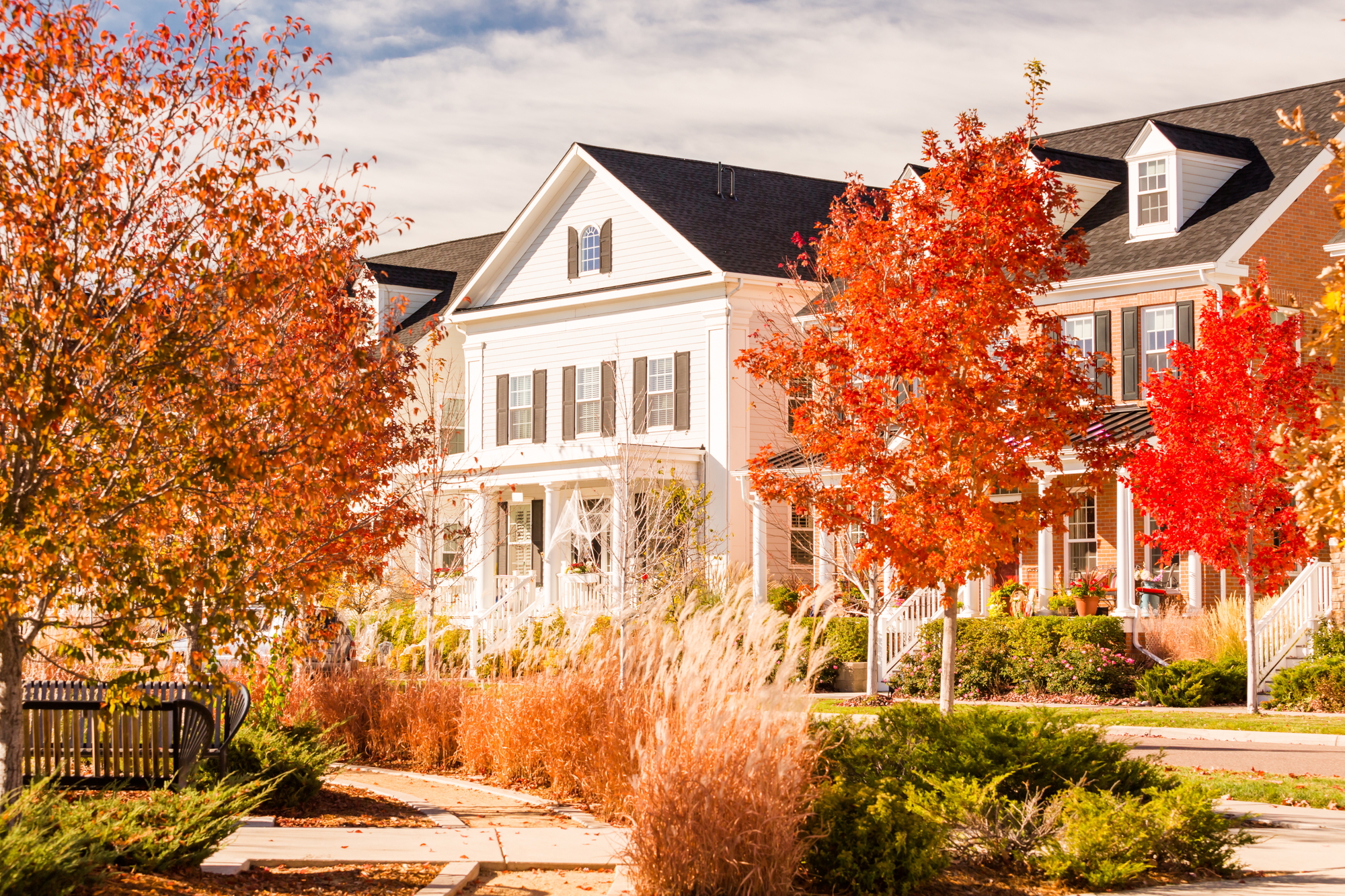
As we enter into the fall season, things are picking up again from the slightly more sluggish market of August. (And is there a better word for just about anything in August than "sluggish?") Almost every year, we see a bit of a dip in August, and a pick up after Labor Day, after vacations are over, kids are back to school, and people are a little more "back to business." Over the past few years, this cycle is a little less reliable as things have been in a nearly nonstop upward trajectory. In August, the month's supply of homes for sale stayed the same as it was in July, at just under 2 months, and it's the highest it's been since October of '23. Now, we're still not near a balanced market (that's closer to 6 months of inventory), but it's definitely better than it has been. Overwhelmingly, we're still seeing homes that are "done" are selling quickly, and we're still seeing plenty of homes sell for over asking price. The homes that are not "done," or are not priced accordingly, are sitting for much longer than they would have six months ago. Numbers are great, but easy to find and harder to unpack. Anecdotally, I've been tracking price reductions in our market since the beginning of the summer. What had been a pretty consistent 250 reductions per week at the beginning of the summer has been steadily creeping up, sticking at around 350 for weeks, and now tipping into the low 400's. Is that a terrible indicator? No. More likely it's a cooling of the crazy market that we've been in, where everyone wants to price higher than the last one, and not every home, nor every location, warrants that type or jet fueled appreciation. Additionally, when working with buyers, I've seen they have a bit more variety, and given that money has been and continues to be more expensive to borrow, they're a little more choosy about where they spend it on, meaning pricing is more important than it was even 5 or 6 months ago. As always, if you have questions about YOUR neighborhood, area, or home, or where you want to live, please reach out. I'm happy to break down the data that's specific to your situation.
Read more
If you're thinking of buying a home, you're probably talking to different people, doing some research online, hearing different opinions, and maybe stressing out a little bit about, "What if I make the wrong decision?". Yes, this is a huge decision, but getting some clarity around what you want and what you don't want and what your concerns are, and yeah, talking to your agent about those concerns, can go a long way to helping you make sure you make the right decision when you're buying. Yahoo Finance did a little survey of some of the reasons that people have regret about the home that they bought over the past year and I'm going to go down the list and talk a little bit about each one.
Read more
As 2023 draws to a close, the Metro Richmond real estate market presents an intriguing landscape for homebuyers, sellers, and investors alike. This comprehensive analysis delves into the current state and future outlook of the Richmond market, offering what I hope are some valuable insights for those navigating this dynamic environment. Current State of the Richmond Real Estate Market Richmond, known for its affordable housing market, vibrant culture, and rich history, is part of a larger metropolitan area encompassing Chesterfield, Hanover, Henrico, and Richmond City, home to nearly one and a half million people. In 2023, the market exhibited several key trends: New Listings and Sales: There was an 8.3% decrease in new listings compared to 2022, with a 27.8% drop in closed sales, reflecting a challenging environment for finalizing transactions. Median and Average Sales Prices: The median sales price in Richmond saw a 6.9% increase, reaching $405,000, while the average sales price rose by 8.5% to $472,515. Market Performance Metrics: Properties were moving quickly, with median days to pending at just 6 days. About 66.6% of sales were transacted over the list price, suggesting a competitive market. Anecdotally, I can definitely speak to this, as nearly no transaction with which I've been involved has had only one offer. Predictions for 2024 Looking ahead to 2024, several predictions and trends are shaping the Richmond real estate market: Economic Growth and Mortgage Rates: A backdrop of modest economic growth and slightly higher unemployment is expected. Mortgage rates are anticipated to begin a slow retreat, improving housing affordability but potentially increasing demand as more buyers get into the market after having been waiting out the higher rates. Home Prices and Sales: A slight dip in the growth of home prices is expected, with a continued trend of stable but low home sales levels. Don't misconstrue this- it doesn't mean prices are dropping, just that prices may not continue at the same level of growth over the next year. (I definitely predict they'll still increase, though.) Housing Inventory: The number of existing homes for sale is expected to remain low due to insufficient building in past years. Mortgage rates are expected to exceed 6.5% for the year, maintaining the gap between market mortgage rates and rates on existing mortgages. (It's harder to sell when you know you're giving up 3% and going to 6%, so fewer homes are likely to hit the market.) Rental Market: The rental market is expected to see a mild decline in median asking rent, with a robust supply of new multi-family homes tempering rent growth. Opportunities for Buyers and Sellers: First-time homebuyers may find some relief as the market becomes slightly more buyer-friendly in some respects. Home sellers, on the other hand, might face increased competition from new construction homes. Richmond Specific Forecast: For the Richmond area, a 3.3% growth in home prices is predicted for 2024, despite a projected 11.6% decrease in sales. The Richmond real estate market as 2023 closes shows resilience and potential for growth, offering a dynamic landscape for both buyers and sellers. While sellers remain in a strong position due to high demand and quick sales, buyers should still be prepared for competitive conditions, especially for well-prepared homes. However, with the expected easing of mortgage rates and a slight adjustment in home prices in 2024, the market may offer more balanced opportunities for both buyers and sellers. So if you're thinking of buying, let's meet and create a strategy to get you where you want to go. If you're thinking of selling, the market is still yours- I'd love to help you figure out how to maximize the value of your home, and get it sold to give you the most in your bottom line.
Read more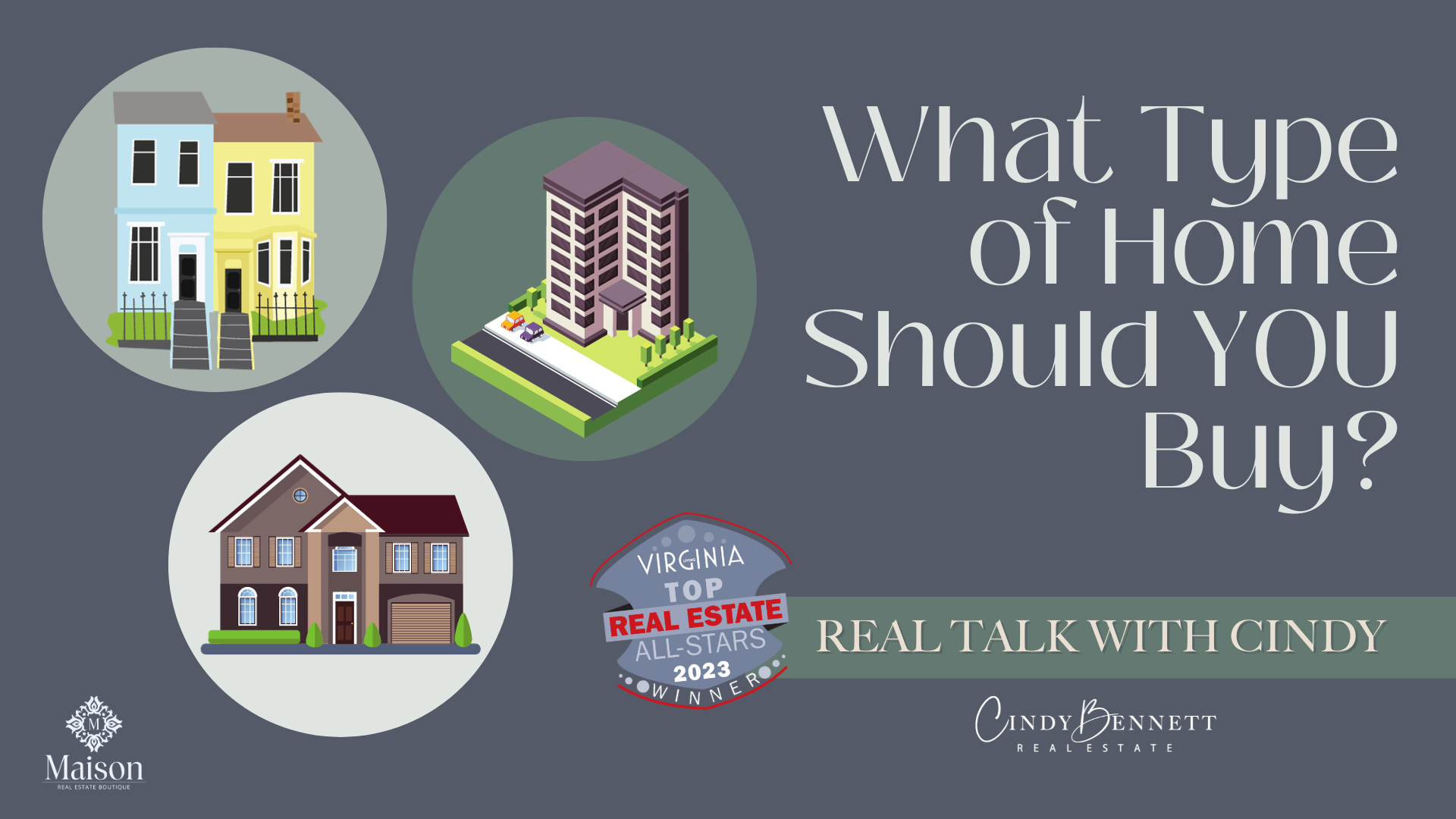
So you're thinking about buying a house, or a condo, or a townhouse, or something? How do you decide on what the right type of home to purchase is based on your budget and your lifestyle? First of all, a lot of people, with lower price ranges particularly, often think a condo or a townhouse is going to solve all their problems, because usually, they're a little less expensive, in most cases than a single-family home. Don't forget that one of the things you have to include, and that your lender is going to look at, in your qualifications number, is the homeowners association, the condo association, whatever they want to call it, that community that you're joining is going to have a fee every month. Sometimes it's going to have special assessments, sometimes those fees can go up. But always, you're going to want to make sure that the fee that is there now is going to work with your budget and the payment that you're going to end up with, and that it's going to cover enough to make you feel comfortable spending that money. The main difference between a townhouse and a condo is the type of ownership. Basically, in a condo, you own what's inside the four walls. Often people think of condos as units in a building like apartments. But, sometimes townhome-looking things can be condos as well. But again, you only own what's inside those four walls. As opposed to having any land or garden yard, whatever that is yours. Obviously with a single-family home, unless you're in a maintenance-free community, all of that exterior maintenance is going to be yours with a townhouse or a condo. Often, that fee is going to cover things like the landscaping and the outdoor areas. Usually, if there's a pool or other amenities, tennis courts, that sort of thing, it's going to cover those as well. But often, it will also cover siding, the roof, the exterior items like doors, and things like that. But those are going to be on a schedule. So there are a lot of moving parts. When you start looking at those associations, what they cover, and how they're covered, you might be thinking, well, I'm not going to pay $250 a month because I can buy a house and then I'll just mow my own grass. But, you can usually pretty much assume that you're going to end up somehow spending at least $250 a month on your single-family home unless you are kicking some maintenance items down the road a little piece. So while the money is important, often the lifestyle is even more important. More maintenance-free options, like townhomes and condos, I think are fantastic for a lock-it-and-leave-it mentality. If you travel a lot for work or you travel a lot for pleasure, or you just don't have time to do yard work or it's just not something you want to do. You don't want to have to worry about getting quotes on a new roof. You want somebody else to deal with that. Or maybe you want the amenities that come with a townhome, a maintenance-free community, or a condo. Those are really lifestyle differences instead of just simple financial ones. Make sure that you read those documents well. You do have a three-day right of rescission, if you can't live with the way that they take care of the property, what you're paying for, or if it looks like their finances are shaky. You want to make sure that you're comfortable not only with the amount of money, but also what you're getting for the amount of money you're paying. A condo or townhome may be for you if you want to have a little bit more of a hands-off approach to maintenance. Sometimes it's worth it and sometimes it's not. If you're thinking about buying I'd love to talk through it with you and help you determine what the best deal for you is for both your budget and your lifestyle to make sure that the home that you buy is one that you love to live in. Give me a call send me a message shoot me an email and let's get started.
Read more
Who pays for what when you're buying or selling a house: buyer edition. So if you're buying a house, sometimes when you get excited you think about the process, and you're really focused on looking at homes and that whole emotional aspect of it, you don't necessarily think about all of the little things that come along the way, and who pays for them. So when you're buying a home, the first thing once you have found the house that you love, and you're writing the offer, of the first things you're going to do is you're going to write a check to send a wire for the earnest money deposit. Now, that is basically a deposit that is going to be held in escrow. So it doesn't go directly to the seller in the state of Virginia, in the state of Virginia, that is all I can talk about because that is where I am licensed. So in the state of Virginia, it does not go directly to the seller, it gets held by the settlement agent that you're going to use to do your closing, or the real estate company that you are working with to buy your home, that generally needs to be about 1% of the entire purchase price of the home. So if your house is $500,000, you probably want to write about $5,000. As your earnest money deposit, it basically binds the contract again, it gets held in an escrow account until closing. So if you were originally going to have to bring $100,000 to closing, you will then only have to bring $95,000 Because that $5000 gets applied to whatever else you bring to closing for your downpayment, your closing costs. Another thing you're gonna have to pay for as the buyer is any inspections that you have. And we are now still in a crazy tight market, but we are seeing a good number of inspections. And they can range in price from $100 to $1,000, depending on the type of inspection. And what I always tell people is you can have as many inspections as you are willing to pay for. You have to weigh that out and discuss that with your agent, because you may know that you want to have a camera sewer inspection on one house, and on another house, it may not seem as important. So sometimes those numbers and those types of inspections depend on what you're buying, and where and all that good stuff. So remember, the seller is not paying for any inspections except the pest, Wood Destroying Insect, inspection. That is the one that they're paying for and it usually costs them $100 or less. Once you've covered that earnest money deposit and your inspections, your next cost is going to be your appraisal. And if you're going to have a survey. And your appraisal is generally going to be in the 600 to $1,000 range. And that survey, if you want to have one, a lot of lenders don't require them anymore, but they vary widely depending on the property, the type of property, where it is, how difficult it is to survey, and 100 other things. So I can't give you an estimate there. But those generally are going to be things that you're going to have to pay for out of pocket, because should the loan not go through, those people still want to be paid. So they're going to want the money upfront and not rolled into your closing costs that happen on closing day. After you get through those financial hurdles, you're not going to have to pay anything really until you get to the settlement table and then you're going to have all of your lender fees, your attorney fees, your title insurance, your points that you might have with your mortgage, there are a whole bunch of things and I have another video that kind of breaks down the closing costs, so go check that out if you want a little bit more detailed info on what your closing costs entail. But at settlement, you're going to get that earnest money deposit that you paid upfront applied to that number and then you're going to have all of your closing costs and the actual amount that you're paying for your down payment. And then you're done. But those little along-the-way fees sometimes get lost and all the excitement so just make sure that you've budgeted and that you've got the cash, even if you're putting a relatively low down payment, make sure you've got the cash to cover all those other things that you might want to do along the way or that you're going to be required to do. If you have any questions or you want a little bit more detailed information about what things might look like for you in your financial situation with the home that you want to purchase. Give me a call I'd love to chat and help you make your homeownership dreams come true.
Read more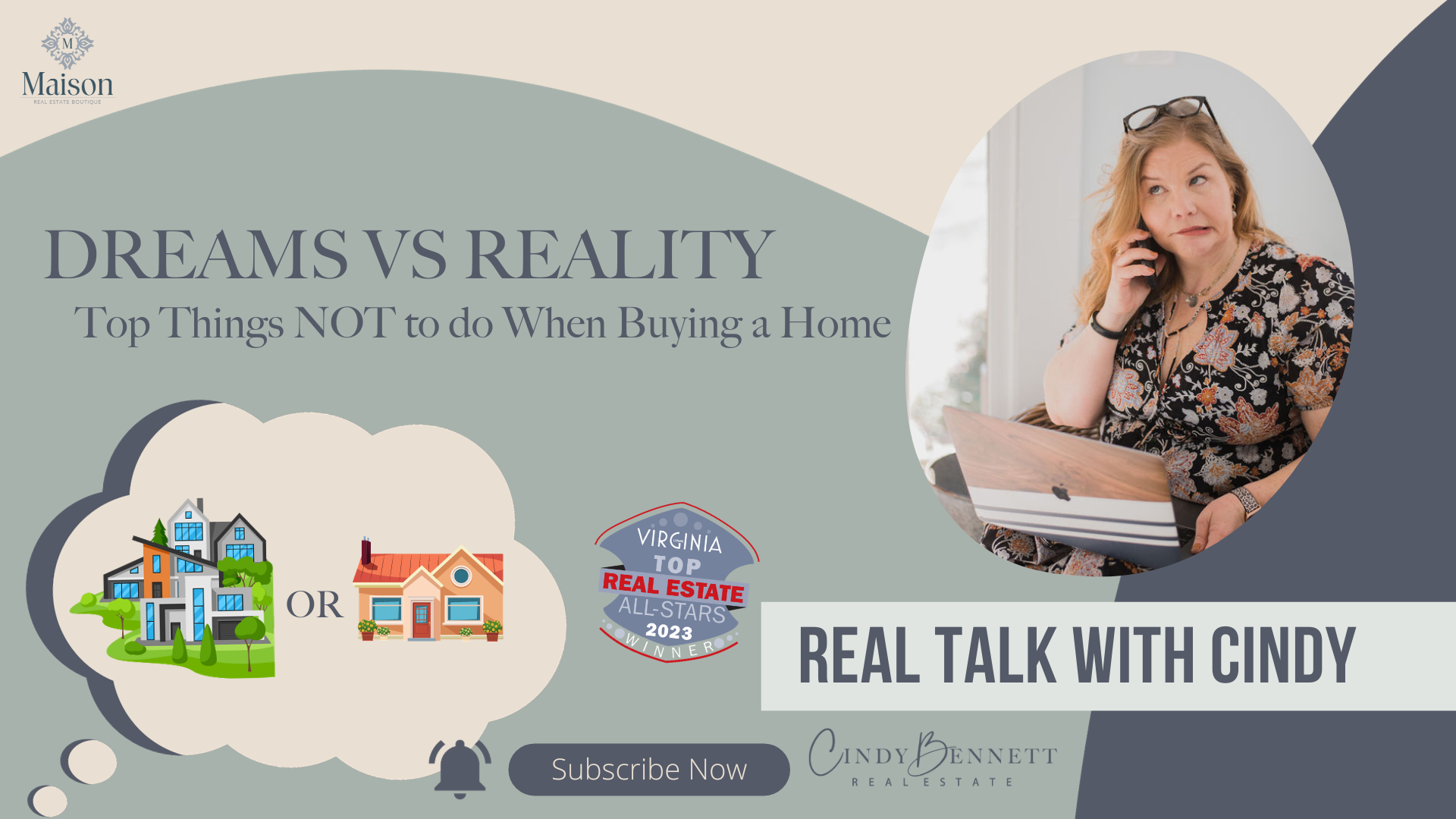
Dreams versus reality. Here are a couple of things that I implore you to please not do if you are thinking about starting to look for a home. In a perfect world, when we start looking for that perfect home for you we are able to find something that fits all of your needs, is going to be able to be your forever home, and is of course going to be totally Pinterest-worthy. The problem is that sometimes the Pinterest dream does not hit the budget reality. And if you're starting to shop for a home, whether it's your first home, your fifth home, or anything in between, our budgets are just a little bit less than what our dream looks like it's going to be. So while I do always encourage buyers that I'm working with to fill out a have-to-have list and an absolutely not list, make sure that those are actually giving you enough opportunity to be open to the possibilities that are actually available in your budget. Because otherwise, trust me it is a very discouraging process. Make sure that when you're talking about, thinking about, and writing down those must-haves they're things that are actually possible within your budget. And sometimes that really means looking at your whole house budget, your whole life budget, and talking to a lender to get that pre-approval number first. But remember, your first home doesn't have to be your forever home, your second home doesn't even have to be your forever home. So, spend more time with the lender and your budgets and looking at the houses that are actually available, rather than spending your time building your dream mansion that may be completely unattainable at this point in your life. Trust me, you can get there, but sometimes it takes a couple of houses to land where you really, really want to be. So when you're writing that list of must-haves and absolutely do not want to make sure it's a little more rooted in reality and a little less rooted in Pinterest. Sometimes it's really hard for those things to match perfectly, but we can usually get pretty close to the things that you need, the things that you want. And a lot of times a little special touch from you will get right back into that Pinterest or Instagram category. If you want a copy of my buyer's guide, or you're thinking about starting to look on your own, give me a call, reach out, or send me a message. I'd love to talk to you and help you get started building that wish list for that home that you might be ready to buy in six weeks, six months, or even a year. I'd love to talk.
Read more
So you want to buy a house and you definitely want to have a home inspection, but how does that whole thing work? So for the last few years, I've been saying, we're in a weird market, and a lot of people have waived home inspections. We've seen different sorts of clauses for home inspections, but sometimes you just want to have a regular old full home inspection and you're able to do it with the contract that you have. So let's talk about that really basic, such is the home inspection process. What is a home inspection gonna do? Well, I always look at a home inspector as sort of like your general practitioner. Keep in mind that in most contracts, and in our basic boilerplate contract here in central Virginia, it's going to give you the ability as the buyer to have as many inspections as you want to pay for. But the default home inspection that most people think about is your general home inspection. So that means they're going to go in the crawlspace. They're going to check out the insulation. They're going to make sure the structure looks generally good. They're going to run your faucets, flush the toilets, look at the electrical panel, and test your outlets. All of those things that you're going to be using and living in the house all the time to make sure that they look generally good. So a couple of things to know. Make sure that if you have a question about something, the HVAC looks old, the roof looks old, or you're concerned about the crawlspace, point those things out to your inspector. I have never met an inspector who is not happy to take a closer look at something that you have a particular concern about and just give it an extra once over. I personally usually try to do the home inspections sooner in the timeframe so that if there is something that we need a specialist for, we can get them over there to take a look. So remember, just like you can go to the doctor on Monday and get a cold on Wednesday, the same thing can happen with your home inspection. Your home inspector's gonna have a contract that's gonna say don't hold them liable for things that happen later, because things will always happen later and there's no such thing as a perfect house. Even a house that was finished, new-build, yesterday. So obviously, always get a home inspection if you can. But make sure that you understand what that inspection entails. Make sure that you understand that that inspector is going to answer your questions, they're going to look out for you, they are working for you. Make sure you're comfortable with the inspector and get any specialized inspections that you need, if it's something that you're concerned with. So ideally, whenever you're buying a home, you're gonna get to have a home inspection. If you have questions about great home inspectors or buying a home in general and you want to find out more about that whole process. I'd love to talk to you. Give me a call or reach out to me here or an email and let's set up a time to chat.
Read more
So great, waving an inspection is a great way to get your contract at the top of the heap in a multiple-offer situation, but should YOU do it? I am going to tell you that if you don't have some sort of risk tolerance, don't do it. But if you do have a little bit of risk tolerance, there are ways to get around it. So you can pay an inspector a couple of hundred dollars to walk through the property with you and give you a general idea of how those systems, that you may not know how to assess, what kind of condition they're in. But at the end of the day, you are 100% going to have something happen, whether you have an inspection or not. I call these oh s**t moments, it might be six weeks, it might be six days, it might be a year. You can also buy a home warranty, the seller can buy a home warranty for you, or you can buy one yourself, but they're not going to cover everything. So you're still going to need a buffer. It is always a bit of a risk when you have a home that things might go wrong. So if you are on a razor-thin margin, a razor-thin budget, and you can only afford your mortgage payment, that may not be the house you want to buy anyway, inspection or not. But ultimately, your options are probably to pay way more than the asking price and ask for that inspection, giving the seller some sort of security, that they're going to have still a higher offer, even if they end up with items that they have to repair. Or you're gonna still probably pay more than you want in this market and waive the inspection. It's kind of up to you and where your risk tolerance is. But remember, at the end of the day, if everything is equal, that seller is always going to pick the offer that is the least risk for them. So the more risk you can take on the better price you are going to get on the house that you're purchasing. If you want to take a look at more ways to build an offer, write an offer, or buy a home in general, check out some of my other YouTube videos. Or better yet, give me a call. I'd love to talk to you and I'd love to help you find your dream home.
Read more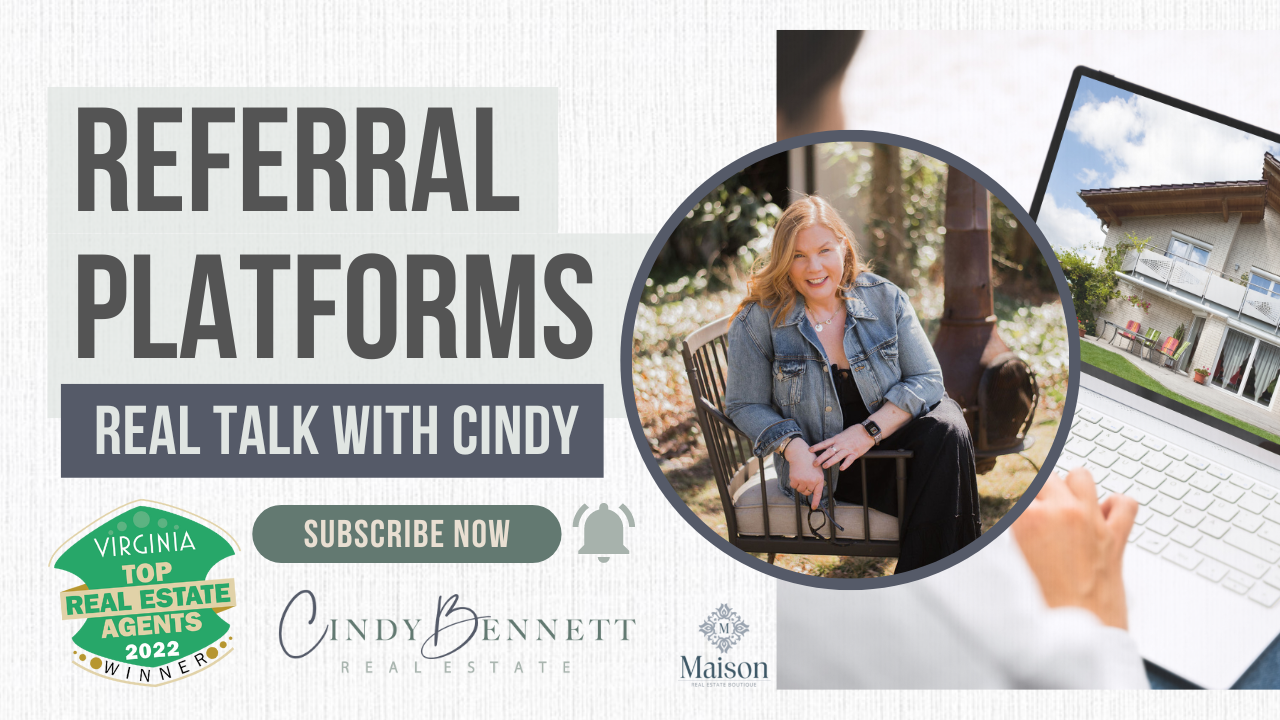
Let's discuss what I mean by "referral platforms" and what happens when you start your home search using one. Have questions? I'd love to help answer them! Find me on Instagram @cindybennettrealestate or send me a message with the chat button below.
Read more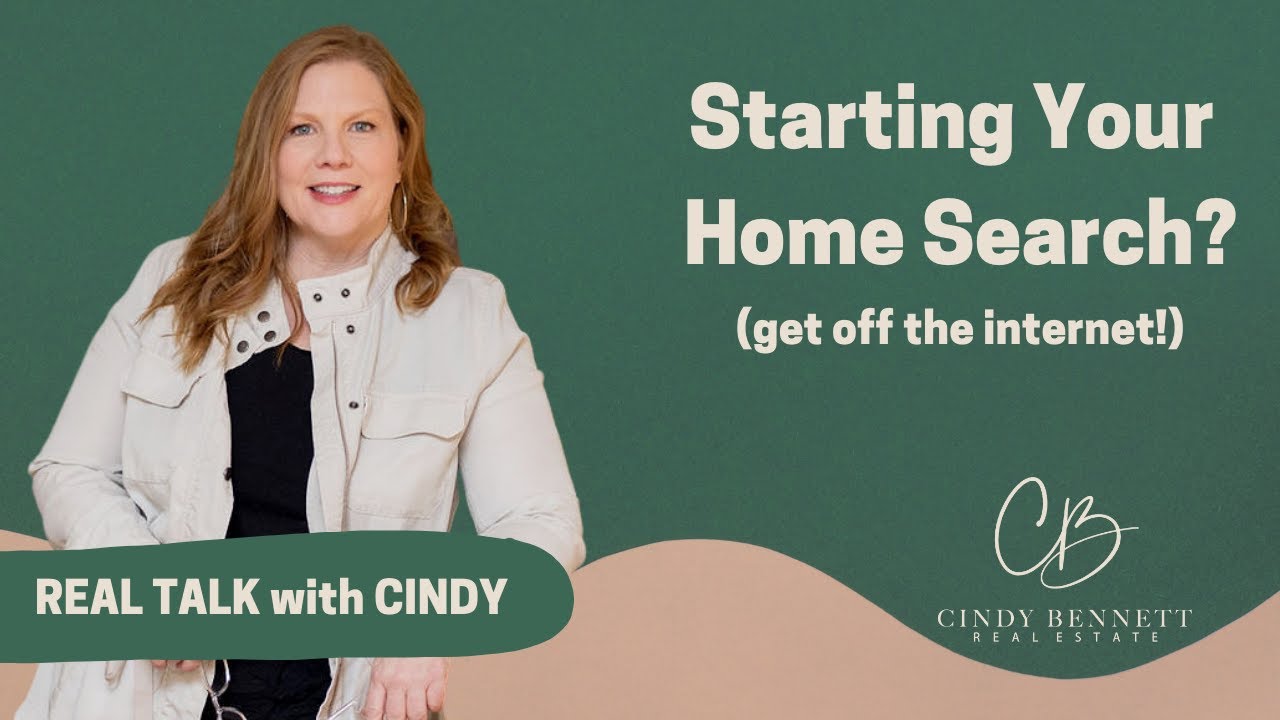
Are you starting your home search? Get off the internet! Here's why a lot of those sites that seem so terrific on the internet might not be the best place to really get going on that home search. You just start poking around and then the next thing you know there's a house you want to see. Make sure that you are connected with, you know, me, or a realtor in your local market that's going to be able to give you the solid data, the actual listing price, and the comparables that are up to the moment in that particular neighborhood and area that you're looking at. Once you're ready to look at real homes in real life, let's set up a meeting in real life and set up a plan that's perfect for you and that home that you know you're gonna love.
Read more
